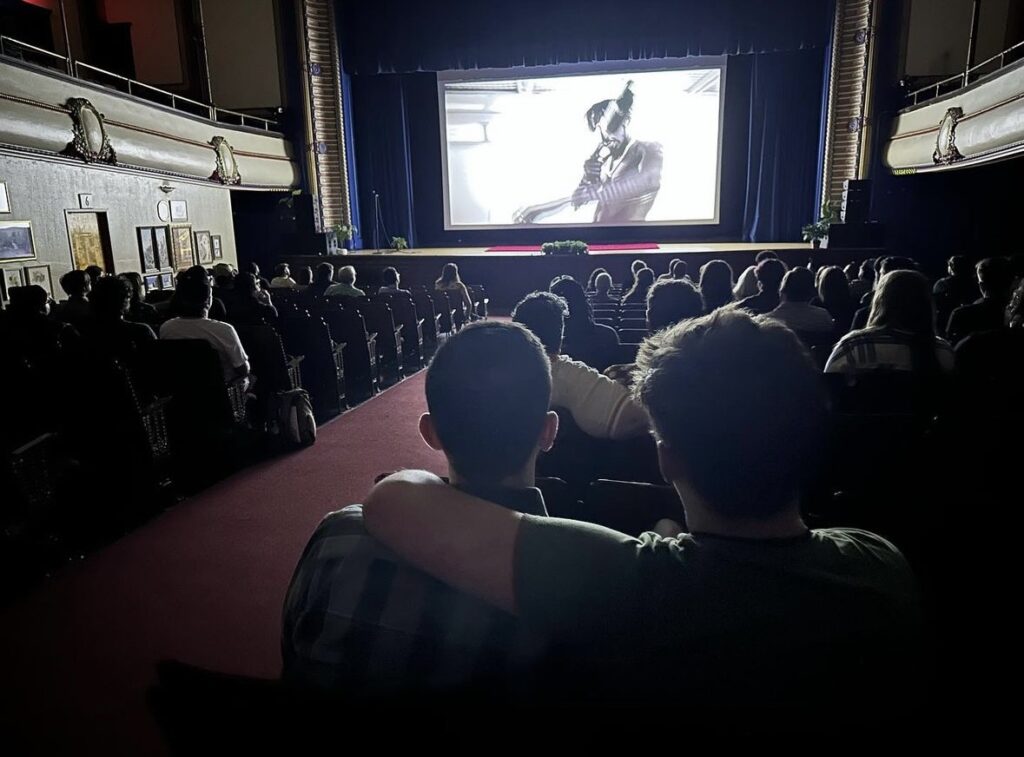The Appalachian Queer Film Festival showcases creative works centered around the LGBTQ experience in rural America. For its tenth anniversary this year, the festival is headed to Shepherdstown.
West Virginia native Jonathan Matthews is the event’s co-founder and co-director. He spoke to Eastern Panhandle Reporter Jack Walker about what’s in store for this year’s festival on Sept. 27 and 28.
This interview was edited for length and clarity.
Walker: To begin, tell us a little bit about the festival.
Matthews: So it’s the Appalachian Queer Film Festival, and what we hope to accomplish is — I guess the obvious goal is to bring films to West Virginia that aren’t usually seen. There’s a lack of queer film across the country, across the world. But I think especially in Appalachia, there are limited movies that are shown in general, and we just want to have that exposure.
But the other part of it — and this may be a less obvious thing — is to bring filmmakers and films from other parts of the country and other parts of the world to West Virginia and Appalachia. To show, hey, we’re different than the stereotypes. Yes, we might have voted overwhelmingly for Trump, but there are a lot of people that are very progressive and have trans and queer rights in mind that are making great art, and this is a space for you here. To show people from out of state how awesome Appalachia is, and to show people that are here, “Hey, this is possible. You can do art. You can do film. And you can make it.”
Walker: How do you curate the slate of films that get shown?
Matthews: We’re just in the second year of being a submission-based festival. Before we kind of selected [films]. A lot of them were friends from film school and from the industry that had queer and trans films out in festivals. We were like, “Hey, we’d love to have your film.” In the last two years, we’ve just gotten on FilmFreeway, which is just kind of like a clearinghouse submission website for film festivals. And we’ve had a ton of submissions. I think we have 33 films this year. We’re a short film festival, and we feel like we have quality over quantity, for sure.
Walker: What kind of topics do this year’s films focus on?
Matthews: The criteria is really just queer content. Or queer, trans filmmakers, producers, writers, directors, that kind of thing. But we really try to program and curate the festival with either Appalachian or rural themes, settings, filmmakers, in mind. We’d love to have the filmmaker be from Appalachia, the film be set in Appalachia, to have queer and trans content that speaks to Appalachia and has a conversation about it. It’s great when we check all those boxes and have the perfect film. Some years there are more of those films than others, and this year’s one where I feel like there are a ton of great films out there.
Walker: You mentioned that a goal of this festival is to create new conversations in and about Appalachia. How have you seen that play out in the past decade of festivals?
Matthews: In years where we’ve had to do the film festival basically by scraping together whatever change we find in the couch, the thing that I think about is somebody telling me once, “It’s so important just to see that your festival exists.” To know, for example, my daughter who’s queer has this thing that exists that makes her feel like she’s part of a community. She’s not an outlier here in Appalachia. There are others of us that support her and support her art. I just think about that all the time. It’s great, what our program is, and people seeing these films. But it’s so important to have “Appalachian” and “queer” in the same title. To have that exist, and that people see that and feel seen. I just think that’s so important. I mean, that’s how I got sold on the festival.
To learn more about the Appalachian Queer Film Festival and how to attend, visit the event’s website.























